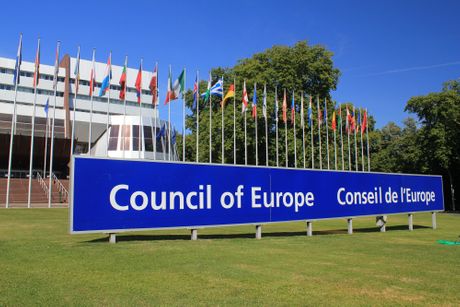It's uncertain whether Pristina's bid will be on agenda: There's understanding for Belgrade's position in CoE

In mid-May, an official request for admission of so-called of Kosovo to the Council of Europe (CoE) arrived in Strasbourg. The Committee of Ministers of the Council of Europe was supposed to discuss this today. Although the chairman of the Committee planned to put that item on the agenda, the Serbian mission in Strasbourg told RTS that Belgrade managed to prevent it through intensive diplomatic efforts.
However, they say, the procedures are such that it will not be known until the last moment whether the issue will be discussed today.
At the start of the session, the agenda is set once again. At that time, member states can request that Pristina's request for full membership in the Council of Europe be included in the discussion.
"For now, we have encountered understanding from the majority of member countries that it should not be put on the agenda," said the ambassador at the Mission of Serbia to the Council of Europe, Aleksandra Djurovic.
If the Committee of Ministers, which consists of heads of diplomacy of 46 member states, accepts that Pristina's request should be discussed, the Parliamentary Assembly of the Council of Europe would make its position known. The final decision would then be made by the Committee of Ministers.
In both cases, a two-thirds majority is required for Pristina's bid to be accepted.
The admission procedure can take up to a year, sometimes more. Serbia, for example, submitted its request to the Council of Europe at the end of 2000, we received a report two years later, becoming a member in 2003. Croatia waited six years for admission.
"Although is are a large number of countries here that have unfortunately recognized so-called Kosovo, they are also aware that the initiation of the procedure for membership of an unrecognized entity, which cannot be considered a European state, therefore does not satisfy Article 4 of the CoE Statute, in fact, the processing of such a request would open a Pandora's box for some future situations," says Aleksandra Djurovic.
The question arises as to whether the procedure could be accelerated due to the war in Ukraine.
Deputies are free to vote, and their views do not have to be aligned with the views of their governments, but with the views of the parties they come from.
"There needs to be much more diplomatic coordination, that is, diplomatic support from international partners. Except for the German chancellor who explicitly said that Kosovo has the support of Berlin, there has been no such explicit support in other international meetings. So it's difficult to predict, but there is no reason for great optimism, in my opinion," said (Pristina based) analyst Leart Hoxha.
Although there are two offices of vice-prime ministers in Pristina that deal with foreign policy, Albin Kruti also established a commission that exclusively deals with the issue of Kosovo's membership in international organizations.
"Essentially, Serbia has several ways to try to prevent this. It's through certain petitions that can influence countries to vote in favor or against, and they primarily concern non-enactment of certain laws, that is, the lack of respect of human rights in Kosovo. Above all, the rights of the Serbs, the Serb community in Kosovo. The second is that many countries in Western Europe blame the Kosovo government for not implementing the decisions of the Constitutional Court of Kosovo and for not returning the land that was taken from the (Serbian Orthodox) Visoki Decani monastery," says journalist Miroslav Mihajlovic.
Nemanja Starovic from the Serbian Ministry of Foreign Affairs points out that the very act of Pristina applying for membership in the Council of Europe served as a kind of trigger for the continuation of (Serbia's) campaign for withdrawals of Kosovo recognitions, which, he stressed, was successfully conducted until September 2020.
"During that time as many as 18 countries made a decision to withdraw their recognition of the unilaterally declared independence of Kosovo and Metohija, and since the spring of this year we managed to obtain eight more," said Starovic.
The Council of Europe already has an office in Pristina, and so-called Kosovo is a member of several bodies of this international organization that deals with protection of human rights and democracy.
(Telegraf.rs)
Video: Unuk ranio babu i dedu, pa pucao u sebe u dvorištu na Zvezdari
Telegraf.rs zadržava sva prava nad sadržajem. Za preuzimanje sadržaja pogledajte uputstva na stranici Uslovi korišćenja.

